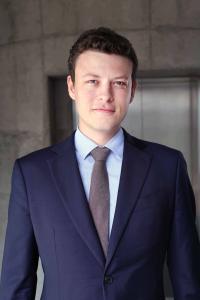This article was first published on "Mongolia Focus": External Link
A pragmatic president
Battulga was elected in 2017 as a candidate nominated by the largest Mongolian opposition party, the Democratic Party. During his campaign, he was regarded as a political outsider but gathered support among voters who were critical of placing more political power in the hands of the ruling Mongolian People’s Party and their unpopular candidate M Enkhbold. Although he campaigned on a platform of hawkish views on Chinese-Mongolian relations, his presidential agenda was shaped by ideas of careful balancing and further cautious rapprochement towards the People’s Republic. Especially a diplomatic gesture during the beginning of the COVID-19 crisis earned him much international recognition: As a sign of good neighbourly relations, he organized the donation of 30,000 sheep from Mongolia to China. The neighbouring superpower returned the favour later by delivering large amounts of COVID-19 tests and vaccines.
A deeply political decision?
For his whole incumbency, Battulga has faced a Mongolian Peoples Party’s (MPP) supermajority in parliament. In 2019 they proposed a series of amendments to the constitution that would limit the president’s power to shift Mongolia’s semi-presidential system more in the direction of a parliamentary system, among other things. The most serious change to the position of the president under the new amendments is the limitation to a single six-year term instead of two four-year terms under Article 30.2. Originally these amendments were planned to include an adjunct grandfather clause. This would have stated that this section only enters into force in 2025. This would have guaranteed that the sitting president would be eligible to run for a second four-year term this year. Controversially, this clarifying clause was removed from the draft before its passage, creating uncertainty around the current president’s rights. Eventually, the modified amendments were passed just in time as the timeframe for passing them was closing rapidly allowing for the mandatory 6-month buffer between any constitutional changes and the next elections. This brought some preliminary closure to the painstakingly complex and many months-long political negotiating that preceded the passing, leaving one basic question in limbo, leaving the Constitutional Court to decide on the matter. However, the independence of the Court has been disputed in the past. The judges have been accused to rule in the favour of strong political actors, namely the MPP. This alone seriously taints the perceived legitimacy of the ruling in the eyes of many observers. In Mongolian social media, many have suspected a deeply political decision.
Checks and balances no more?
Now that the medium chamber of the court decided to bar the sitting president from running again, the decision must be ratified by the Mongolian parliament, the Great State Khural. But after shifting the parliamentary electoral system to a first-past-the-post system the MPP won again a supermajority in last year’s June elections while gathering “only” 44,8% of the popular vote. While the Democratic Party retained many seats in provincial assemblies during the subsequent local elections, they are faced with an overwhelming MPP majority of 81,6 % in the national parliament. This non-representative accumulation of seats by the MPP already poses a challenge to democratic principles that goes beyond the difference between the popular vote and the number of seats in most winner-takes-all systems in the world. Having such a non-representative supermajority modify constitutional amendments in a way that directly benefits them by making the right of the most popular politician at the time to run against them uncertain, seems at least like a questionable use of that legislative power. Battulga was ranked the most popular politician in the country in 2018 in the KAS / St. Maral Politbarometer. During his presidency, he was always ranked as the most or second-most popular politician who constantly enjoyed the trust of at least 1/3 of the population in the nationwide poll. These numbers are more impressive than they might seem at first glance since large parts of the population harbour a deep mistrust against the political class. The ambiguity that resulted from passing the amendments without a specific grandfather clause directly benefits MPP by eliminating another check in the legislative system of the country.
This is especially the case since U Khurelsukh, the prime minister at the time, has and had clear ambitions to become the next president of Mongolia. Using relatively small protests following a scandal in the health sector Khurelsukh stepped down as head of government right before the local escalation of the pandemic. Even as Khurelsukh was announcing his resignation at a press conference, the Standing Committee on State Structure was already meeting to give the necessary approval to his actions. In his speech at the parliamentary session that followed shortly thereafter, Khurelsukh accused President Battulga of instrumentalizing the protests for his own purposes and fomenting them unnecessarily. At the same time, the outgoing head of government stressed that he still had years ahead of him in politics. In subsequent speeches, members of the ruling party brought up the possibility of impeachment proceedings against the president. Although they have so far not followed up on these ultimate threats, the problematic nature of utilizing the sharpest judicial tools a democracy has to offer to achieve politically short- and midterm goals remains. Now, after the decision of the court, Khurelsukh’s chances of not having to run against a still popular incumbent increased significantly. Now, that many critics openly call his emotional resignation a rather mediocre masterclass in acting, the incumbent president would pose a more serious threat than ever to the former prime minister.
A political system in jeopardy?
Although this would be unorthodox, the parliament can still reject the ruling and return the decision to the court’s full chamber. This final verdict would not need to be ratified by the parliament. Of course, it is uncertain if the court’s full chamber would decide differently. But it would at least signify the parliament’s will to acknowledge the potentially undemocratic character of the events leading up to this situation. In a country where the trust in the independence of courts is certainly underwhelming and the electoral system assured a supermajority for the government for two consecutive terms, losing one more check on power seems by itself already potentially harmful enough. Undermining the democratic process by the parliament gladly accepting to ban one of the most promising candidates from running seems irritating for assuring people that checks and balances are still in place.
About Johann Fuhrmann and Max Duckstein
Johann Fuhrmann heads the office of the Konrad-Adenauer-Foundation in Mongolia. Prior to that, he was Head of Growth and Innovation at the Economic Council (Wirtschaftsrat der CDU). As a scholarship holder of the German Academic Scholarship Foundation he obtained his Master’s degree (MSc.) in International Relations at the London School of Economics.
Max Duckstein is Senior Policy Analyst at the Konrad-Adenauer-Foundation’s office in Mongolia. He obtained his Master’s degree (M.A.) in Sociology at Bielefeld University. As a scholarship holder of the German Academic Exchange Service (DAAD) he spent a semester in Russia as visiting researcher at Saint Petersburg State University.




